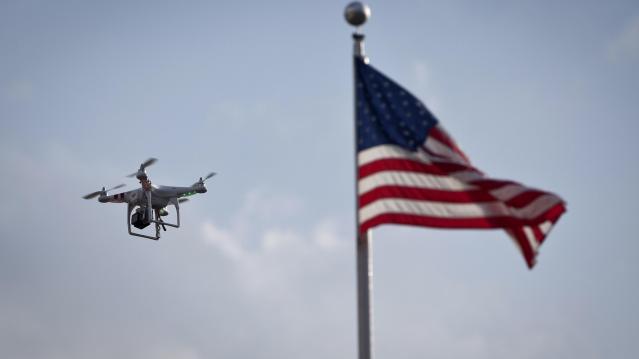Undertrained Military Drone Pilots Have Senators Steaming

Lawmakers on Capitol Hill sent a scathing letter to Defense Secretary Ash Carter this week slamming the Pentagon for allowing Air Force and Army pilots to operate predator drones without completing their necessary training.
The revelation came in a report published last week by the Government Accountability Office that said most drone pilots never finished all of their training because of pilot shortages and a lack of planning and strategy within the Defense Department.
Related: Undertrained U.S. Drone Pilots Put War Effort at Risk
The report said that just about 35 percent of Air Force pilots had completed training for all their required missions. Separately, the Army had not been keeping sufficient pilot training records. “As a result, the Army does not know the full extent to which pilots have been trained and are therefore ready to be deployed,” the report said.
In the letter to Carter, Sen. John McCain (R-AZ), chairman of the Senate Committee on Armed Services, and Sen. Jack Reed (D-RI), the ranking member of the committee, said they were “disturbed that the Department of Defense has no standardized training program for [unmanned aerial system] pilots and personnel.”
"The continued lack of consistent and uniform training standards is simply unacceptable. In addition to collecting critical intelligence, the department's UAS programs carry out sensitive strike missions that should require high standards and specialized training,” the letter said.
Related: The Duck Drone That Could Change the Navy
The senators slammed the Air Force for its lax training efforts and demanded that the military improve its process and resolve the pilot shortages.
"These pilot shortages have constrained training and place extreme strain on the existing community of pilots and sensor operators,” the senators wrote.
The GAO first called attention to the drone pilot shortages and training concerns last year. The auditors said that the military attempted to resolve the shortages by hiring more instructors, but the new report shows that the instructors, too, lacked sufficient training.
Deficit Hits $738.6 Billion in First 8 Months of Fiscal Year

The U.S. budget deficit grew to $738.6 billion in the first eight months of the current fiscal year – an increase of $206 billion, or 38.8%, over the deficit recorded during the same period a year earlier. Bloomberg’s Sarah McGregor notes that the big increase occurred despite a jump in tariff revenues, which have nearly doubled to $44.9 billion so far this fiscal year. But that increase, which contributed to an overall increase in revenues of 2.3%, was not enough to make up for the reduced revenues from the Republican tax cuts and a 9.3% increase in government spending.
Tweet of the Day: Revenues or Spending?

Rep. Kevin Brady (R-TX), ranking member of the House Ways and Means Committee and one of the authors of the 2017 Republican tax overhaul, told The Washington Post’s Heather Long Tuesday that the budget deficit is driven by excess spending, not a shortfall in revenues in the wake of the tax cuts. The Wall Street Journal’s Kate Davidson provided some inconvenient facts for Brady’s claim in a tweet, pointing out that government revenues as a share of GDP have fallen significantly since 2015, while spending has remained more or less constant.
Chart of the Day: The Decline in IRS Audits

Reviewing the recent annual report on tax statistics from the IRS, Robert Weinberger of the Tax Policy Center says it “tells a story of shrinking staff, fewer audits, and less customer service.” The agency had 22% fewer personnel in 2018 than it did in 2010, and its enforcement budget has fallen by nearly $1 billion, Weinberger writes. One obvious effect of the budget cuts has been a sharp reduction in the number of audits the agency has performed annually, which you can see in the chart below.
Number of the Day: $102 Million

President Trump’s golf playing has cost taxpayers $102 million in extra travel and security expenses, according to an analysis by the left-leaning HuffPost news site.
“The $102 million total to date spent on Trump’s presidential golfing represents 255 times the annual presidential salary he volunteered not to take. It is more than three times the cost of special counsel Robert Mueller’s investigation that Trump continually complains about. It would fund for six years the Special Olympics program that Trump’s proposed budget had originally cut to save money,” HuffPost’s S.V. Date writes.
Date says the White House did not respond to HuffPost’s requests for comment.
Americans See Tax-Paying as a Duty

The IRS may not be conducting audits like it used to, but according to the agency’s Data Book for 2018, most Americans still believe it’s not acceptable to cheat on your taxes. About 67% of respondents to an IRS opinion survey “completely agree” that it’s a civic duty to pay “a fair share of taxes,” and another 26% “mostly agree,” bringing the total in agreement to over 90%. Accounting Today says that attitude has been pretty consistent over the last decade.



